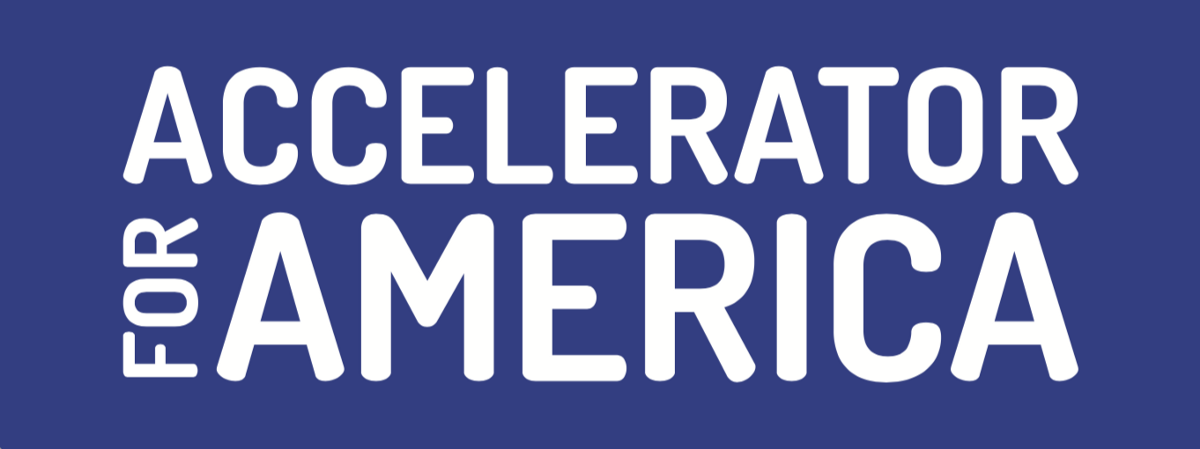Dayton has been selected as one of six “stimulus command centers” around the country that will try to coordinate the use of federal relief and recovery funds to maximize their impact.
Read MoreLos Angeles Mayor Eric Garcetti joined House Speaker Nancy Pelosi, House Transportation and Infrastructure Committee Chair Peter DeFazio, and a coalition of U.S. mayors today in urging the federal government to make a bold investment in the nation’s infrastructure.
Read MoreThis week, Accelerator for America, a group that focuses on economic development, infrastructure and other issues in cities, along with Drexel University’s Nowak Metro Finance Lab, released a data analysis tool that gives city leaders and others a way to get a clearer understanding of how these disparities in business ownership look.
Read MoreThe Covid-19 crisis is America’s greatest economic shock since the Great Depression. It’s landing hardest on small businesses, the heart of local economies and community life. This social upheaval from the pandemic has also sharpened our focus. Over the past several months, the Nowak Metro Finance Lab at Drexel University has partnered with Accelerator for America and The Mastercard Center for Inclusive Growth to develop the Small Business Equity Toolkit.
Read MoreMayor Greg Fischer: The American Rescue Plan Act (ARP) provides Louisville with the opportunity to not only eliminate the COVID-19 virus and recover from the pandemic, but to make historic progress toward becoming a city of equity and opportunity for all.
Read MoreCities and their inner suburbs need an immediate lifeline from Washington to stabilize their finances after the devastation of the pandemic. But once those communities regain their balance, they could become crucial allies for Biden. By working with big metros, the president would be aligning federal policy with powerful economic, social, and electoral trends—and empowering local officials overwhelmingly sympathetic to his core objectives.
Read MoreAlthough details on how it will be spent remain sparse, the St. Louis region will see as much as $700 million in federal pandemic aid as part of the American Rescue Plan championed by President Joe Biden.
Read MoreThe federal government’s American Rescue Plan will provide Louisville Metro Government with an estimated $434.5 million to support the city’s efforts to fight COVID-19 and hasten a robust and equitable economic recovery, Louisville Mayor Greg Fischer announced Thursday.
Read MoreThe New Partnership for Infrastructure, a group that grew out of the think tank Accelerator for America, released the revised infrastructure playbook Monday as federal lawmakers are expected to begin crafting an infrastructure bill after the $1.9 trillion COVID-19 relief bill is approved later this week.
Read MoreFor 12 years, Benjamin has seen a city go from economic uncertainty and lack of development, to one with a revitalized Main Street, a new development known as BullStreet Commons, a track record of excellent financial reporting, and a major investment in fixing the water, sewer, and stormwater infrastructure improvements.
Read MoreDayton Mayor Nan Whaley’s eighth and final State of the City address this week called on the community to “redouble” its COVID-19 safety efforts and emphasized new and ongoing work to reform police policies, prevent evictions, combat inequality and bring new investment to Black neighborhoods.
Read MoreSmart Cities Dive identified 20 stories detailing the prevalent and groundbreaking trends that influenced a year like no other.
Read MoreSmart city technology has proven powerful at helping cities around the world battle Covid-19, as our annual review shows, and it will continue to be required throughout 2021.
Read MoreSome Salt Lake City residents most impacted by COVID-19 are receiving ‘Salt Laker Cards’, courtesy of a community nonprofit-led fundraiser.
Raise Up Salt Lake City began distributing $500 cash cards – Salt Laker Cards – to community members on Dec. 7. The no-fee credit card will assist city residents and families who don’t qualify for or couldn’t access federal stimulus money due to their immigration status and personal situations and fall below 80% AMI.
Read MoreAround the country, voters have approved multibillion-dollar plans to build or expand transit systems. Mayor Vi Lyles wants to put a similar question on the ballot in Charlotte next year.
Read MoreThe 2020 virtual Michigan Investor Summit was hosted by the Michigan Municipal League (MML), Accelerator for America, and the Michigan Urban Core Mayors. Mayor Schor is a member of the Accelerator for American and Michigan Urban Core Mayors.
Read MoreTo help alleviate financial stress, cities from Philadelphia to Los Angeles have used some of their federal coronavirus relief funds to help residents pay rent or utilities. Nonprofits like Accelerator for America have also stepped in by raising over $10 million to provide relief in the form of prepaid debit cards to local residents, particularly those who are unbanked and undocumented.
Read MoreAs Los Angeles sought to disburse relief funds to its poorest residents at the height of the pandemic, it found itself in uncharted territory.
Unlike state and federal entities that process unemployment claims and tax refunds, cities typically lack the infrastructure to make payments to individuals. So Los Angeles turned to the private sector for assistance, working with Mastercard Inc. MA and economic-development nonprofit Accelerator for America on a program that collected private donations, partly via text message, and distributed funds to qualified residents on prepaid “Angeleno” debit cards.
Read MoreThis June, that pattern was broken with the release of America’s New Playbook for Infrastructure from the New Partnership on Infrastructure, which contains 26 proposals to enhance the country’s built environment. The playbook is a months-long effort—led by Los Angeles Mayor Eric Garcetti’s group Accelerator for America—which involved interviewing dozens of mayors and experts in the field of infrastructure.
Read MoreWith the Black Lives Matter protests sparking new dialogue about race relations within the United States, more corporations have been forming new initiatives to end long-standing racial discrimination across different sectors. This week, Mastercard has unveiled its new commitment toward the racial wealth gap within the Black community with a $500 million investment over the next five years.
Read More




















